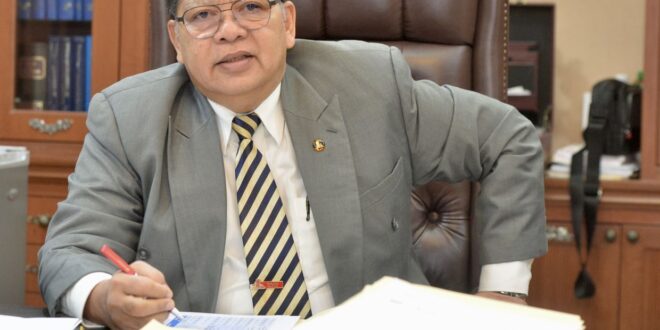TOKYO: Dewan Rakyat Speaker Tan Sri Johari Abdul commenced his five-day official trip to Japan on Monday (June 3) by visiting two Japanese agriculture technology and research related entities.
Johari and a delegation from the Malaysian Parliament visited the National Agriculture and Food Research Organisation (Naro) at its headquarters in Tsukuba, Ibaraki, and held a meeting with Naro president Dr Kazuo Kyuma and his team.
During the meeting, Johari expressed Malaysia’s desire to enhance the productivity and efficiency of the country’s agriculture through cooperation with Japanese technology and that Malaysia intended to learn best practices from Japan in the field of agriculture while improving trade relations.
“I am interested in Naro’s initiatives in promoting collaborative activities and sharing information to help the international community produce more food in response to potential shortages.
“We hope to learn a lot from you and, perhaps, when we assume the chairmanship of Asean next year, we will certainly try to encourage other Asean countries to come and learn from you so that we can benefit from your achievements,” he said during the meeting.
Johari was also briefed on the development and future outlook of smart agriculture by the Institute of Agricultural Machinery, Naro, as well as the development of a new field water management system utilising ICT by the Institute for Rural Engineering (Nire) Naro.
A demonstration of a robot tractor with a remote monitoring system was also held, as an example of how to achieve labour savings and increase the scale of agricultural production.
During the three-hour visit, the Malaysian delegation was also taken to the Japan International Research Center for Agricultural Sciences (Jircas) and briefed on collaborative research projects in Malaysia, including sustainable replanting of oil palm through scientific and technological innovation.
Johari also discussed the potential of tapioca as an alternative food to rice, considering its nutritional value and as a solution to the scarcity of local rice. – BK
 BeritaKini.biz Berita Viral Terkini di Malaysia
BeritaKini.biz Berita Viral Terkini di Malaysia





